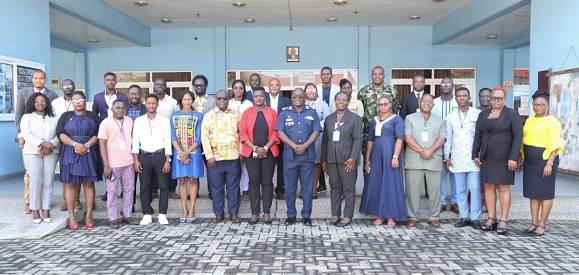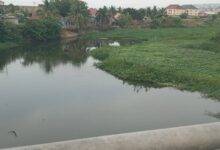
A-five day training on maritime security reporting for journalists and maritime security professionals commenced at the Kofi Annan International Peacekeeping Training Centre (KAIPTC) in Accra yesterday.
The training seeks to enhance the capacities of maritime security agencies as well as maritime security practitioners to understand, collaborate and report accurately on maritime issues, and also supports efforts to reduce maritime crimes in the region.
It also aims at enhancing the knowledge and skills of media and maritime security professionals to effectively contribute to the attainment of maritime security in the Gulf of Guinea.
It’s sponsored by the Danish Government and forms part of a five-year project on ‘Integrated responses to threats to Maritime safety and security in the Gulf of Guinea (GoG) Domain in West and Central Africa.’
Participants included journalists, media liaisons and maritime security actors from maritime institutions from the Navy, Marine Police, Maritime Authority and Port Administration across West Africa and Central Africa.
Opening the workshop, Professor Kwesi Aning, the Director, Faculty of Academic Affairs and Research at KAIPTC, said the role of the media was very crucial in promoting maritime security and stressed the need for the media to be abreast with issues in the maritime sector.
He said the oceans contributed three trillion dollars to Gross Domestic Product (GPD), and could add three billion dollars to the Africa economy.
Prof. Aning expressed worry over how the oceans had become dumping sites for refuse and feacal matter and called on the media to drive the debate regarding to maritime issues in order to ensure its safety.
The Deputy Commandant of the KAIPTC, Air Commodore George Arko-Dadzie, in his remarks stated that the United Nations Office on Drugs and Crime estimates that the threat of piracy had cost the region lives and stability over $1.9 billion in financial losses every year.
He said since the latter part of 2021, maritime piracy had been on the decline as evident in the low level of incidence reported in the Gulf of Guinea region
“From a high of 123 incidents in 2020, the first six months of 2023 has seen 14 incidents, 10 of which are armed robbery at sea cases,” he added.
The Deputy Commandant said aside maritime piracy and armed robbery at sea, the Gulf of Guinea region also continued to grapple with other crimes including illegal fishing, human trafficking, marine pollution, toxic waste, dumping, illicit arms and drug trade, among others.
He said these illicit activities exploited the region’s inadequate maritime control which stems from insufficient law enforcement, capacity, underdeveloped legislation and limited policy implementation.
Topics to be discussed includes introduction to the blue economy, media and maritime security, legal and policy frameworks on maritime security, introduction to maritime security, law and ethics in maritime security reporting ,gender, livelihoods and maritime security.
BY ANITA NYARKO-YIRENKYI







